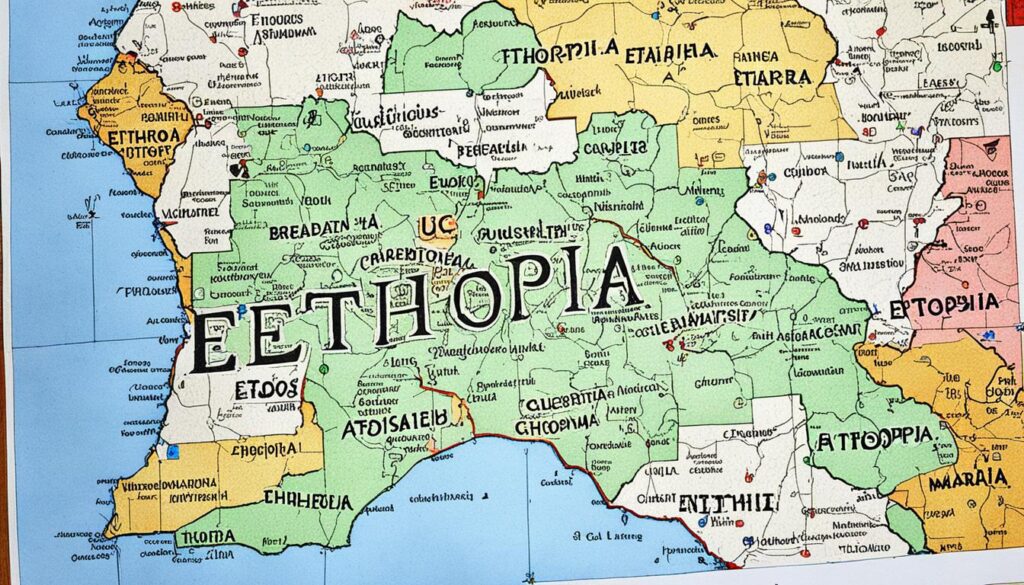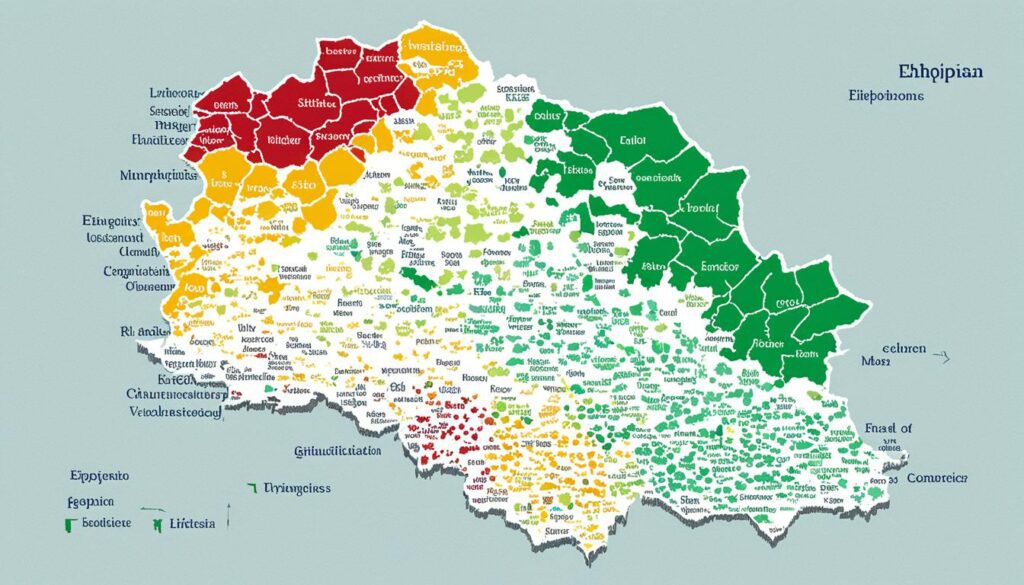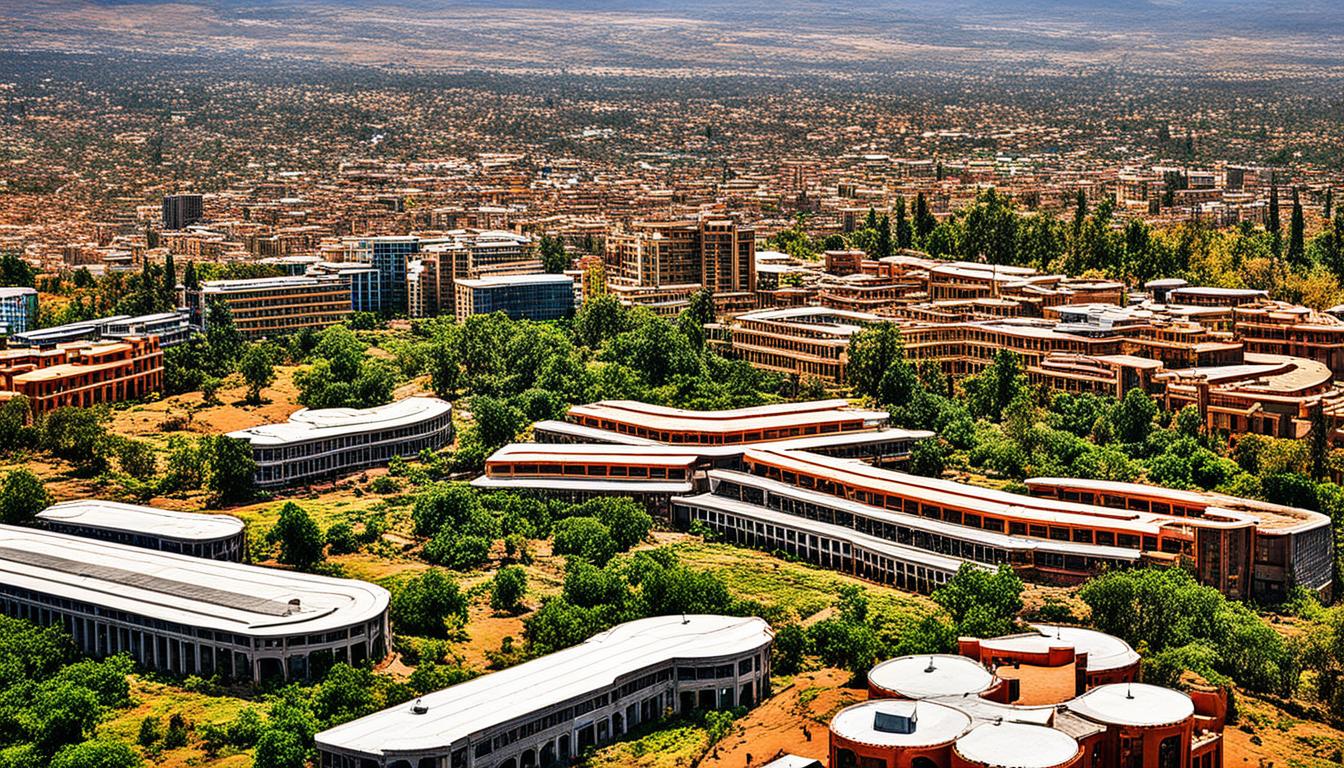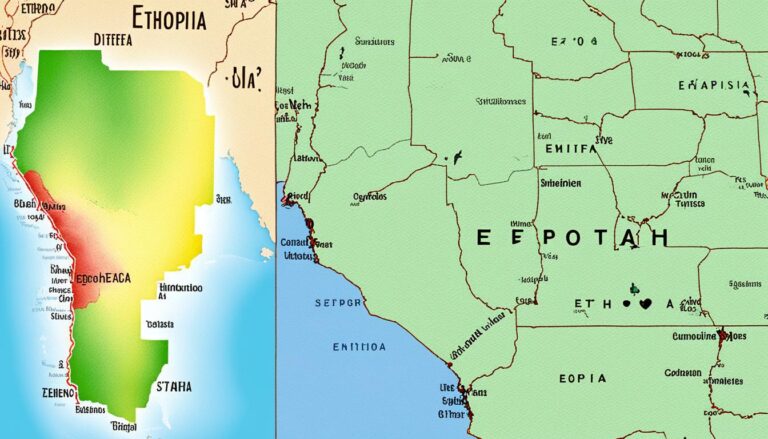How Many Universities Are There in Ethiopia?
Did you know that Ethiopia is home to a staggering 83 universities? This includes 42 public universities and over 35 higher education institutions. These numbers reflect the significant growth and development of the higher education sector in Ethiopia, providing a multitude of educational opportunities for students across the country. Let’s dive deeper into the historical development, expansion, and impact of Ethiopian higher education.
Key Takeaways:
- Ethiopia has a total of 83 universities, comprising 42 public universities and over 35 higher education institutions.
- The higher education system in Ethiopia has a long history, with the establishment of the University College of Addis Ababa in 1950 being a significant milestone.
- Reforms and expansions in Ethiopian higher education have contributed to the growth and development of the sector.
- Higher education institutions in Ethiopia play a vital role in the socio-economic development of the country.
- Despite the progress, challenges such as the quality of education and resource limitations need to be addressed for the continued improvement of Ethiopian higher education.
Historical Development of Higher Education in Ethiopia
Higher education in Ethiopia has a long and rich history. It all began with the establishment of the University College of Addis Ababa in 1950, which is now known as Addis Ababa University. This marked the beginning of modern higher education in the country, a significant milestone that laid the foundation for the growth and development of Ethiopia’s educational landscape.
Before the establishment of modern universities, Ethiopia had a system of monastic institutions under the Ethiopian Orthodox Tewahedo Church. These institutions provided education to qualified priests and played a crucial role in imparting knowledge and fostering intellectual growth within the religious community.
“Education is the most powerful weapon which you can use to change the world.” – Nelson Mandela
Over the years, Ethiopia’s higher education system has undergone various reforms and expansions. As a result, numerous universities and colleges have been established across the country, further enhancing educational opportunities for Ethiopian students.
“Education is not preparation for life; education is life itself.” – John Dewey
These institutions have played a pivotal role in shaping the future of Ethiopia by producing skilled professionals, fostering innovation, and contributing to the overall growth and development of the nation.
“The function of education is to teach one to think intensively and to think critically. Intelligence plus character – that is the goal of true education.” – Martin Luther King Jr.
- Addis Ababa University
- Jimma University
- Hawassa University
- Bahir Dar University
- Mekelle University
Expansion and Reforms in Ethiopian Higher Education
Since the regime of the Ethiopian People’s Revolutionary Democratic Front (EPRDF) in 1994, significant reforms have been made in the higher education sector. These reforms have resulted in the expansion of the higher education system and the establishment of more universities and institutions in Ethiopia.
As of 2022, Ethiopia boasts a total of 83 universities, encompassing both public and private institutions. This growth in the number of universities reflects the commitment of the Ethiopian government to enhance access to higher education and improve the quality of education in the country.
These universities play a pivotal role in driving the overall development of Ethiopia’s higher education system. They offer a wide range of academic programs and disciplines, catering to the diverse educational needs of students across the nation. Students have the opportunity to pursue studies in fields such as engineering, medicine, agriculture, business, social sciences, and humanities.
The expansion and reforms in Ethiopian higher education have not only increased access to education but have also contributed to the socioeconomic development of the country. These institutions serve as hubs of knowledge creation, research, and innovation, fostering intellectual growth and technological advancements.
Higher education in Ethiopia has undergone a remarkable transformation over the years, empowering individuals and fueling the nation’s progress. As we continue to invest in our universities and institutions, we are confident that they will remain at the forefront of excellence and pave the way for Ethiopia’s future success.
In conclusion, the expansion and reforms in Ethiopian higher education have yielded substantial growth, with 83 universities flourishing across the country. These institutions offer diverse educational opportunities and contribute significantly to Ethiopia’s development. As we move forward, we remain committed to nurturing a robust higher education system that equips our students with the knowledge and skills to thrive in an ever-evolving world.
List of Universities and Colleges in Ethiopia

Here is a list of some of the universities and colleges in Ethiopia:
| University/College Name | Location |
|---|---|
| Addis Ababa University | Addis Ababa |
| Haramaya University | Harar |
| Bahir Dar University | Bahir Dar |
| Hawassa University | Hawassa |
| Jimma University | Jimma |
| Mekelle University | Mekelle |
| Arba Minch University | Arba Minch |
| Debre Markos University | Debre Markos |
These are just a few examples of the universities and colleges in Ethiopia. The country has a vibrant higher education sector with many more institutions providing quality education to students across different regions. These universities and colleges offer a wide range of academic programs and contribute significantly to the overall development of higher education in Ethiopia.
Relevance and Impact of Ethiopian Higher Education

Ethiopian higher education plays a vital role in the country’s socio-economic development. It provides opportunities for individuals to acquire knowledge and skills that are necessary for their personal growth and professional success.
Higher education institutions in Ethiopia also contribute to research, innovation, and community development. Through research initiatives, these institutions generate valuable insights and solutions to address societal challenges, driving progress and improvement in various fields. Ethiopian researchers and scholars are making significant contributions to global knowledge and understanding.
“Ethiopia’s higher education institutions have the potential to become centers of excellence and become leading contributors to the country’s socio-economic development.” – Dr. Alemayehu Birru, Professor of Economics at Addis Ababa University
Furthermore, higher education plays a crucial role in promoting cultural preservation and diversity. Ethiopian universities offer programs that focus on the country’s rich history, traditions, and languages, ensuring the preservation and appreciation of Ethiopia’s cultural heritage.
Despite the positive impact of Ethiopian higher education, there are challenges that need to be addressed to ensure its effectiveness and relevance. One of the key challenges is maintaining the quality of education. The continuous improvement of teaching methods, curriculum development, and faculty training are essential to enhance the learning experience and equip students with the necessary skills for the competitive job market.
Another challenge is the need for academic freedom. Academic freedom is crucial for fostering critical thinking, creativity, and innovation. Ethiopian higher education institutions should provide an environment that encourages free expression of ideas and a platform for intellectual discourse.
Moreover, additional resources and investments are crucial to further develop the higher education sector in Ethiopia. Adequate funding is required to improve infrastructure, expand research opportunities, and attract top-notch faculty members. Public-private partnerships can also play a significant role in enhancing the quality and relevance of higher education in the country.
In summary, Ethiopian higher education plays a crucial role in the country’s development, providing valuable opportunities for individuals and contributing to research, innovation, and cultural preservation. However, addressing challenges such as the quality of education, academic freedom, and resource allocation is essential to ensure the continued effectiveness and relevance of higher education in Ethiopia.
Distribution of Ethiopian Higher Education Institutions by Type
| Type | Number of Institutions |
|---|---|
| Public Universities | 42 |
| Private Universities | 23 |
| Higher Education Institutions | 18 |
Conclusion
In conclusion, Ethiopia has made significant progress in the development of its higher education system. With a total of 83 universities and numerous higher education institutions, we are working towards providing quality education and expanding access to higher education for our citizens. The expansion of private higher education has also contributed to the growth of our higher education sector.
However, there is still a need for continuous reforms and investments to address the challenges and ensure the relevance and quality of higher education in Ethiopia. We acknowledge that there are areas that require improvement, such as the quality of education, academic freedom, and the need for more resources. We are committed to addressing these issues and creating an environment that fosters excellence and innovation in higher education.
As we move forward, we will continue to prioritize the development of our higher education system, focusing on strengthening research and innovation, promoting inclusivity and equity, and enhancing the skills and knowledge of our graduates. By investing in our universities and higher education institutions, we aim to create a knowledgeable and skilled workforce that can contribute to our country’s socio-economic growth and development.







